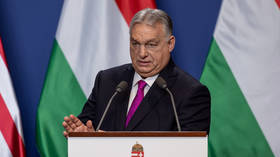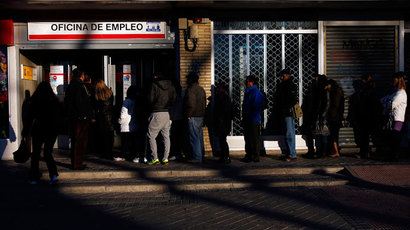Greek unemployment tops 1.37mn, more job cuts on the way
Another 729 Greeks lost their jobs in July, driving the total jobless to 1.37 million. The unemployment could rise further, as under the IMF bailout conditions Athens has to axe as much as 4,000 public sector jobs by the end of 2013.
Greece’s unemployment rate went up further in July to reach 27.6 percent, according to Thursday's report by the country’s statistic service Elstat.
Unemployment in Greece remains the highest among the EU countries, with Spain (26.3 percent) and Cyprus (17.3 percent) following on the list of EU jobless.
Youth unemployment remains a big problem, as 55.1 percent of people under 25, are without a job.
While the Greek government says its economy will start to grow again next year – the first annual growth since 2007 – the labor market will most likely stay subdued.
The conservative-led government expects modest job growth next year. But even then, it forecasts unemployment to remain high, at an average 26 percent compared with 27 percent for this year. The biggest labor union, the GSEE, has painted a much darker picture projecting the unemployment to exceed 30 percent in coming years.
Government cuts, needed to ensure more IMF funding, come as an additional burden on a labor market. State –run companies are bearing the biggest brunt, as the bailout conditions require it to cut thousands of jobs in a public sector, as well as reduce salaries of 25,000 people by the end of 2013.
Greece has so far relied on two bailouts from the Eurozone and the International Monetary Fund: the May 2010 loans worth 110 billion euros ($147 billion), and the February 2012 bailout worth 140 billion euros ($187 billion). However the IMF estimated in late July that Greece's bailout faces a shortfall of around 11 billion euros ($14.59 billion) by the end of 2015, warning that the shortfall could be bigger if growth disappoints.
The likelihood of a third bailout for Greece was widely discussed ahead of the German general election in September. However, the country's deputy Prime Minister Evangelos Venizelos denied the rumors, saying the country can cover its needs without further burdening its current backers.














